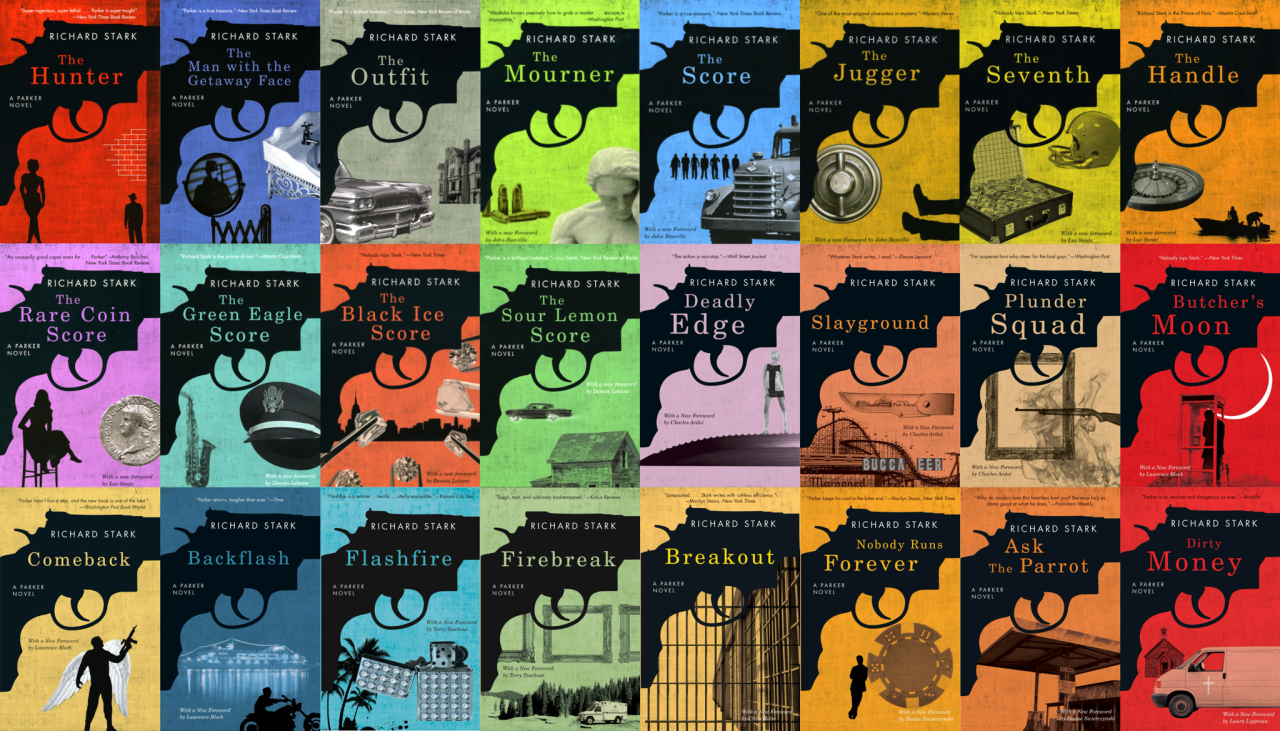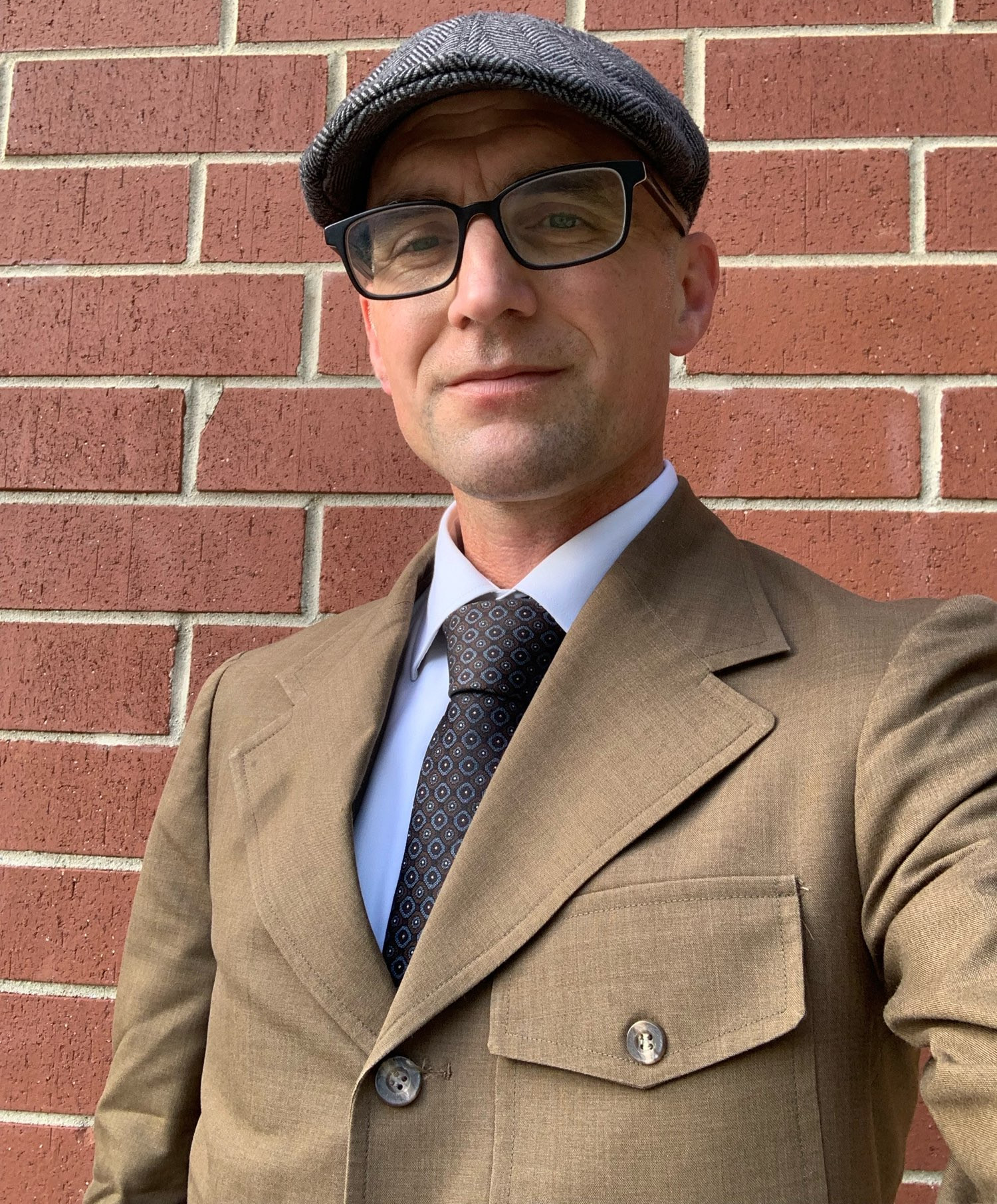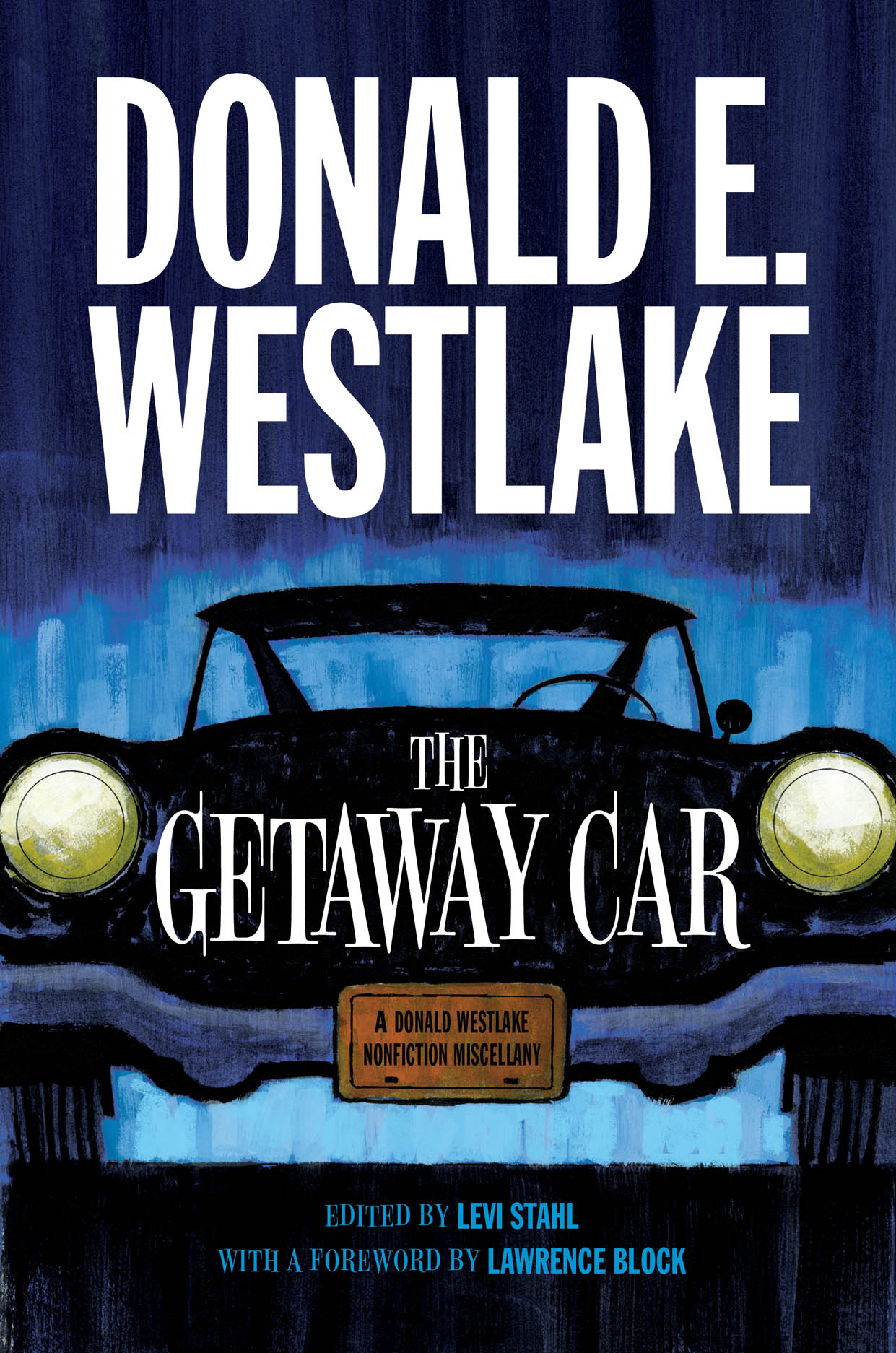tough business:
a parker site
“The fans help you do the work” - An Exclusive Interview with Levi Stahl


Tough Business recently had the distinct pleasure of interviewing Levi Stahl, marketing director of the University of Chicago Press and the editor of The Getaway Car: A Donald E. Westlake Nonfiction Miscellany. To longtime Parker fans, Levi's name is a familiar one, both as a constant champion of Richard Stark's legacy and as the man who effectively got the novels back in print.
Levi revealed the story behind the University of Chicago Press editions, his thoughts on Parker's enduring appeal, his interpretation of the character, and much more! Read the full interview below:
1) How were you first introduced to Richard Stark's Parker novels?
It's all thanks to Charles Ardai's Hard Case Crime paperback imprint. Back around 2005 they brought the Grofield novel Lemons Never Lie back into print. I read it and thought it was great. So a few years later when I was browsing at 57th Street Books, a few blocks away from the University of Chicago Press office, and spied a then-new Parker novel, Ask the Parrot, I decided to give it a try.
2) Back in 2008 Time Out ran a short article crediting you for getting the ball rolling on the University of Chicago Press reprints, how did that come about?
It followed almost instantly on the heels of my picking Ask the Parrot off that shelf. It was the day before Thanksgiving, and things were dead at the office, so I started reading it. When my wife showed up to get me for our drive way downstate to my parents' house, I told her I couldn't possibly take a driving shift until I finished this book. That weekend I started looking into the rest of the series, and over the course of the next month I read as many as I could track down. By about Christmas I was talking to colleagues about it and making a case that these books were good enough and, crucially for a university press, important enough as influential cultural objects of American writing, that we should try to bring them back into print. (Having praise for the series from respected names like Lucy Sante and John Banville helped a lot there.)
3) While interviewing Charles Ardai for the University of Chicago Press blog, you mentioned that you'd worked with Donald Westlake while starting to reprint the novels. Did you get the chance to meet him?
Alas, I never did. We published our first three Parkers in September of 2008 and he died that New Year's Eve. I wasn't in that period working directly on the books, so while I had colleagues who did work with him, I didn't get to meet him. It was in part because of that, which meant I never got to thank him, that I was so happy to get a chance to put together The Getaway Car. If I couldn't say thanks, I could at least give something back to his family and his readers by making a book out of these disparate pieces.
4) Westlake once said, "I think what they liked about Parker was that he had chosen to reject society." That's part of the quote on our homepage, and what we believe is a testament to the wide range of audiences the novels attract. What do you think appeals to readers about Parker?
So many things, but I think first it's simply the pleasure of watching someone who is extremely good at their job set to work. There's a seriousness and commitment that is really satisfying to see in action. Parker won't always succeed, but he will always put in the work to do the best possible job, and he'll bring all his experience and knowledge to bear on it. There's something attractively aspirational about that, even though his work involves theft and murder.
There's also something satisfying about the clarity with which Parker regards the world. He simply dismisses what he doesn't need, in a way that us non-sociopaths can't. We are all burdened down with relationships and manners and responsibilities – most of which are ultimately good and make our lives better, to be clear! – and here comes Parker just flat-out moving towards his goals, unencumbered.
5) You recently spoke about the Murderbot books on Bluesky, and compared them to the Parker series "if Parker could grow or change." Arguably, Parker does grow quite a bit over the course of the novels and Butcher's Moon, the final book in the original series, revolves entirely around his friendship with Grofield. What's your interpretation of the characters and their dynamic?
I think that's right. In most key ways, Parker doesn't change, which is something, considering that he stars in 24 books published over almost 50 years. And the fact that he doesn't change doesn't bore us. He's always interesting.
When you pay attention, though, you realize that he's not exactly the same at the end as at the beginning. In The Hunter in particular, he's more casually brutal than he would be later, I suspect because Westlake didn't realize he was writing a series character until he was done, and he wanted readers to not miss that this guy is legitimately bad.
But more important, as you note, is that he develops relationships. He meets Claire and builds a life with her. It's a strange life, one that those of us living more conventionally probably couldn't understand, but it is a commitment, of a sort he hadn't made before. And while I think he would probably insist that Grofield doesn't really mean any more to him than any other colleague, except to the extent that he recognizes that Grofield is more capable than most, it becomes obvious in Butcher’s Moon that he values Grofield highly, enough to put himself and the job at risk. It surprises the reader when he does that. It absolutely shocks his fellow heisters.
6) The reprints contain forewords from several crime fiction authors and scholars, how were they chosen? Were specific books assigned to them?
One of the fun things about working on this series was learning what people were already fans. We knew of some already, but we discovered more as we went. We published the series in groups of three, and logistics meant that we'd have one introduction for every three books. My colleagues who worked directly on the series just started reaching out to people. We knew some we'd definitely want, like Westlake's old friend Lawrence Block (who went the extra mile of writing a separate introduction for each of the three he was commissioned for). For the rest, we knew we wanted a mix of practitioners in the genre and critics, people who could say with authority that they know how this work is done and how hard it is to do it as well as Westlake did, and people who could put that work in the context of crime fiction and American fiction in general and note its influence and importance.

That's another aspect of the pleasure of marketing good genre fiction, period: The fans help you do the work. They always stand ready to tell new readers why they should give a series a try. I do this myself with books I love. Praise like that keeps books alive for the long haul, and it carries much more weight than anything a marketer or publisher might say.
7) The Getaway Car features a meditation on genre entitled 'The Hardboiled Dicks', in which Donald Westlake speaks about the homosexual subtext in Raymond Chandler's work. Do you suppose there's room for such a reading in Stark's work?
That's not something I've specifically thought about, but if you squint you could imagine it. The heister world as Westlake presents it is almost entirely heterosexual, but at the same time it's almost entirely homosocial, consisting with very few exceptions of men, and operating very much with a 20th-century masculine vibe. There is an element of like recognizing like, of secretive and parallel worlds known only to the initiated, that probably exists in all subcultures that could be drawn out.
8) Speaking of The Getaway Car, was there anything you would have liked to include in there that you didn't get the opportunity to?
I wish I had found a way to include something about Supertrain, the extremely short-lived, "The Love Boat on a train" TV series that was co-created and written by Westlake in 1979. And it would have been a lot of fun to have been able to excerpt his unproduced screenplay for Dashiell Hammett's Red Harvest.
9) Have you read Darwyn Cooke's comic book adaptations? What's your favorite Parker adaptation?
I have been a fan of Darwyn Cooke's work going back to his midcentury reimagining of DC's Justice League of America, so when I heard that he'd be making Parker adaptations, I was very excited. And I wasn't disappointed. He gave the books and characters a distinctive, super-cool look, and he used the medium in extremely clever ways so that the effect is of experiencing the familiar Parker adventures in a truly new way.
As for other adaptations: I love Point Blank, which effectively deploys Lee Marvin's raw physical potency to get across a lot of Parker's character – a challenge for every film version, since, well, Parker prefers not to talk.